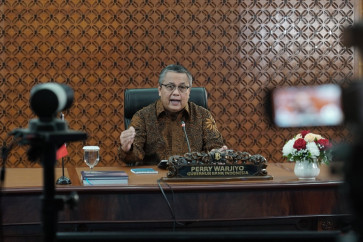Popular Reads
Top Results
Can't find what you're looking for?
View all search resultsPopular Reads
Top Results
Can't find what you're looking for?
View all search resultsWildfire season spreading: Study
The wildfire season globally has lengthened by almost 20 percent in 35 years as the average temperature has risen, a climate change study said Tuesday
Change text size
Gift Premium Articles
to Anyone
T
he wildfire season globally has lengthened by almost 20 percent in 35 years as the average temperature has risen, a climate change study said Tuesday.
"Fire weather seasons have lengthened across 29.6 million square kilometers of the Earth's vegetated surface," said a paper in the journal Nature Communications.
This resulted in a 18.7-percent increase in season length overall.
"We have shown that combined surface weather changes over the last three-and-a-half decades have promoted global wildfire weather season lengthening," said a team of scientists in the United States and Australia -- two countries particularly affected by wildfires.
The researchers used climate data and three indices of fire danger, to produce an overview of fire season length from 1979 to 2013.
Weather is the largest driver of fire risk -- temperature, humidity, rainfall and wind speed all influence the frequency and intensity of wildfires. These factors, in turn, are all affected by a changing climate.
Wildfires play a crucial role in clearing forests, improving grazing and boosting new plant growth, but also pose a threat to human life and property, and nature.
About 350 million hectares are burnt every year, said the report. Fighting wildfires cost the United States about US$1.7 billion per year over the past decade, and Canada about $1 billion.
Total wildfire costs in Australia in 2005 were estimated at nearly $9.4 billion, or 1.3 percent of gross domestic product, said the report.
Over the study period, the global land area with "unusually" hot years increased by 6.3 percent per decade, said the team.
"Fire weather season length and long fire weather season affected area significantly increased across all vegetated continents except Australia," they reported.
And they warned: "If these trends continue, increased wildfire potential may have pronounced global socio-economic, ecological and climate system impacts."
In a separate study in the same journal, scientists said nearly two-thirds of the ocean has experienced an increasing impact from human activities in the five years from 2008 to 2013.
The change, they said, was driven mainly by climate change pressures like anomalies in sea surface temperature, ocean acidification and ultraviolet radiation -- more even than fishing or pollution.(+++)










